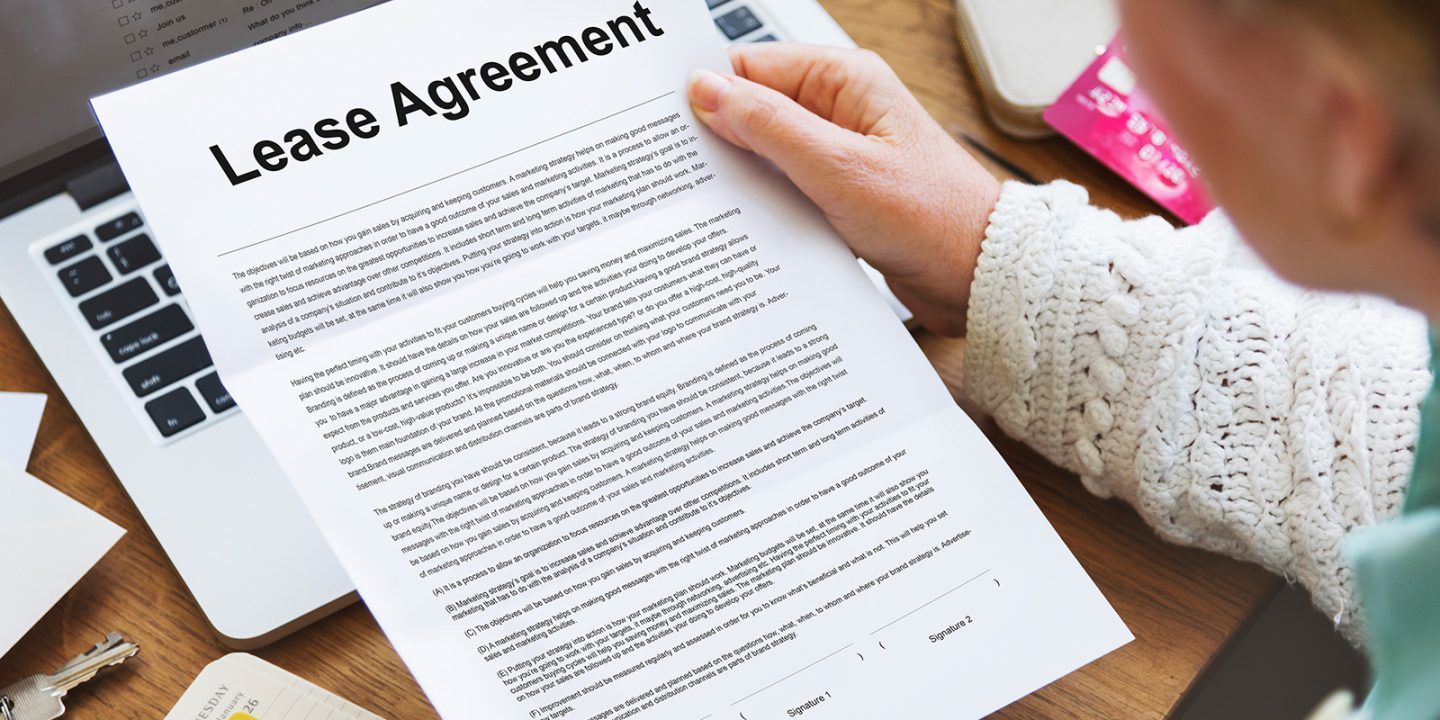
Leasing a commercial property is a major step for any business, impacting everything from daily operations to long-term growth. Whether you’re a small startup or an established company, there are several critical factors you should carefully evaluate before signing a lease. Here’s a comprehensive guide to help you make the best decision for your business.
Location and Accessibility
The location of your commercial property is one of the most important considerations. It affects your brand visibility, customer foot traffic, and convenience for employees. Some factors to consider when evaluating location includes:
Proximity to clients and suppliers: Is the location convenient for your key stakeholders?
Visibility: Does the property offer high visibility for your target audience?
Accessibility: Is it easily accessible by public transportation or major roadways? Does it offer ample parking?
Choosing the right location can directly impact your business success, especially if customer traffic is a significant part of your business model.
Space Requirements and Layout
Determine the amount of space your business needs, both now and in the future. Consider factors such as:
Size and flexibility: Does the property provide enough room for your operations, with potential for future growth?
Layout: Does the layout fit your business’s workflow and customer experience?
Customization: Can you make modifications to the space to suit your business needs, and who will bear those costs?
Assess your current and future space requirements to avoid leasing too small or too large a property.
Lease Terms and Flexibility
Commercial leases vary greatly in terms of duration and flexibility. Some key points to consider include:
Lease length: Short-term leases provide flexibility, while long-term leases offer stability. Consider which works best for your business strategy.
Renewal options: Does the lease offer favorable renewal terms?
Sublease or assignment rights: Can you sublease or assign the lease if your business changes or relocates?
Rent escalation: Does the lease include provisions for rent increases over time, and are they reasonable?
Make sure to review the lease terms carefully and negotiate where possible to ensure the agreement aligns with your business goals.
TMI (Taxes, Maintenance, Insurance) / Triple Net (NNN)
When leasing a commercial property, businesses often encounter additional costs known as TMI (Taxes, Maintenance, and Insurance). These are often part of a triple-net lease, where the tenant is responsible for paying these expenses. It’s essential to fully understand how TMI costs are calculated and how they can impact your budget.
Taxes: Commercial property taxes may vary by location, and the tenant typically covers a portion based on the square footage they occupy.
Maintenance: This includes upkeep of the building, common areas, and sometimes, external features such as parking lots and landscaping.
Insurance: Tenants may be required to contribute to building insurance, in addition to carrying their own business insurance.
Carefully review the TMI structure to avoid unexpected expenses, and factor these into your total occupancy costs.
Cost and Rent Negotiation
Besides the base rent, consider all potential costs associated with leasing the property, including TMI, utilities, and any additional fees. When negotiating the lease:
Compare market rates: Research the average cost per square foot in the area to ensure you’re getting a fair deal.
Ask about incentives: Landlords may offer incentives such as free rent periods or reduced TMI as part of your lease agreement.
Negotiate rent increases: If the lease includes rent escalation, try to negotiate limits on future increases.
Understanding the full financial picture helps you avoid overpaying and ensures that your lease is affordable for your business.
Zoning and Legal Restrictions
Before signing a lease, ensure that the property is properly zoned for your business activities. Zoning laws regulate how property can be used, and your business must comply with these regulations. Additionally, review any local laws or restrictions that may apply to your business operations in the leased space.
Zoning compatibility: Verify that the property is zoned for commercial use and that your specific business type is allowed.
Permits and licenses: Make sure you can obtain all necessary permits and licenses for operating in the space.
Compliance: Ensure the property complies with building codes, health and safety regulations, and accessibility requirements.
Exit Strategy
Finally, it’s important to consider your exit strategy before signing a lease. A well-structured exit plan ensures that you won’t be locked into unfavorable terms if your business needs change. Key factors to review include:
Lease termination clauses: What are the conditions for early termination, and are there any penalties?
Subleasing options: Can you sublease the property if your business grows or relocates?
Buyout terms: If your business outgrows the space, what are the terms for negotiating an early buyout of the lease?
Leasing a commercial property is a complex process that involves careful consideration of various factors. From location and space requirements to TMI costs and lease terms, each element plays a role in determining whether a property is the right fit for your business. By evaluating all these factors thoroughly and working with a real estate professional, you can secure a lease that aligns with your business’s operational needs and long-term goals.
Question and Answer (Q & A)
Q1: How important is the location when leasing a commercial property?
A1: Location is crucial. It affects your business’s visibility, accessibility for customers and employees, and proximity to local amenities. A good location can drive foot traffic and help your business thrive.
Q2: What is the typical duration of a commercial lease?
A2: Commercial leases typically range from 3 to 10 years, but terms can vary. Shorter leases offer flexibility, while longer leases provide stability. It’s important to choose a lease term that aligns with your business’s goals.
Q3: What are CAM fees, and why are they important?
A3: CAM (Common Area Maintenance) fees cover the costs of maintaining shared spaces like parking lots, lobbies, and restrooms. These fees are usually charged in addition to rent, so it’s essential to factor them into your budget.
Q4: Can I negotiate the lease terms?
A4: Yes, lease terms are often negotiable. You can negotiate aspects such as rent, lease duration, renewal options, rent escalations, and even tenant improvements. A real estate agent or attorney can help you during this process.
Q5: What is a triple net (NNN) lease?
A5: A triple net (NNN) lease requires the tenant to pay property taxes, insurance, and maintenance costs in addition to the rent, also referred as TMI. It’s important to understand this arrangement, as it can significantly affect your overall leasing costs.
Q6: Can I make alterations to the leased space?
A6: Alterations are often allowed, but you’ll need the landlord’s approval. Make sure to discuss customization options upfront and get any agreements in writing before signing the lease.
Q7: How can I determine the right property size for my business?
A7: Consider your current operations, number of employees, equipment, and potential growth. It’s better to lease a slightly larger space if you anticipate expansion, but don’t overpay for excess space that you won’t use.
Q8: What should I inspect before leasing a commercial property?
A8: Inspect the property for structural integrity, electrical systems, plumbing, HVAC, and any potential safety hazards. Ensure the property complies with local building codes and zoning laws.
Q9: How does zoning affect my business operations?
A9: Zoning laws dictate how properties can be used. Ensure the property is zoned for your specific type of business (e.g., retail, office, industrial) to avoid legal issues or disruptions to your operations.
Q10: What happens if I need to break the lease early?
A10: Breaking a lease early can result in financial penalties. However, some leases include break clauses that allow early termination under specific conditions. Make sure to discuss this with your landlord before signing.
Q11: Can I sublease the space if I need to downsize?
A11: Subleasing rights should be clearly stated in the lease. If permitted, subleasing allows you to rent out the space to another tenant, helping you cover costs if your business needs change.
Q12: What is a rent escalation clause?
A12: A rent escalation clause outlines how and when your rent will increase during the lease term. Increases may be based on inflation or fixed percentages. Be sure to review and understand the escalation terms before signing.
Q13: Should I work with a real estate agent when leasing a commercial property?
A13: Yes, a commercial real estate agent can guide you through the process, help you negotiate favorable terms, and ensure you understand the lease agreement. They have the expertise to find properties that meet your business’s needs.
Q14: What is tenant improvement (TI) allowance?
A14: Tenant improvement allowance is the amount a landlord is willing to contribute toward customizing or renovating the leased space. Negotiating TI allowance can help reduce your upfront costs for modifications.
Q15: How should I handle property maintenance responsibilities?
A15: Maintenance responsibilities should be clearly outlined in the lease. In some cases, the landlord handles repairs, while in others, the tenant is responsible for maintenance. Make sure you know who is responsible for what to avoid unexpected costs.







